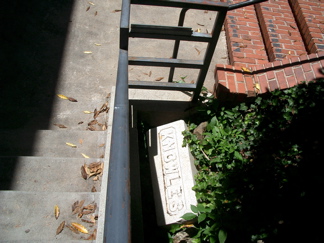The New York Times is out with its latest poll on how we, red states and blue alike, feel about our commander-in-chief/village idiot. Here’s the lead:
“Increasingly pessimistic about Iraq and skeptical about President Bush’s plan for Social Security, Americans are in a season of political discontent, giving Mr. Bush one of the lowest approval ratings of his presidency and even lower marks to Congress, according to the New York Times/CBS News Poll.”
“Season of political discontent.” That’s got a ring to it. But does it actually mean anything? On its Web site, the Times publishes 21 pages of poll results. The statistics apparently include all the questions asked in its most recent survey as well the past results when the same questions were asked. It’s interesting to look at what people were saying a year ago.
Then, the Times poll found that 42 percent of respondents approved of the way Bush was handling his job, and 51 percent did not. Today’s dramatic change: 42 percent approve and 51 percent do not.
Let’s look at Iraq. The Times asked, “Do you approve or disapprove of the way George W. Bush is handling the situation with Iraq?” A year ago, 36 percent said they approved and 58 percent said they disapproved; today, 37 percent approve and 59 percent disapprove.
(The poll’s historical numbers on Iraq seem to show how much we like a winner, how much we’re swayed by a good TV picture, and how ephemeral wide popular support of the war has been: The high point for Iraq support in this poll came in a survey done April 11-13, 2003, immediately after U.S. troops entered Baghdad and we all got to watch that Saddam statue getting pulled down: 79 percent said they approved of Bush’s handling of Iraq and 17 percent disapproved. The support numbers stayed in the 70s through late May ’03 — the month Bush declared victory — but fell into the high 50s in July. September 2003 marked the first time the poll found more respondents (47 percent) disapproving than approving (46 percent). And in fact, the approval number has risen above 50 percent just once since — the week after Saddam’s capture in December 2003, when it popped up to 59 percent, only to fall back into the 40s by mid-January.)
The point is, if we’re in a season of political discontent, it’s nothing new. The real question you need to unravel is how, with numbers like this, did Bush get re-elected. I don’t think there’s a simple answer to that, but some of the elements of an answer are out there: The public’s low regard for Congress (current approval number, according to Times poll, is 33 percent; and the rather confounding finding that people approve of Bush’s handling of the war on terrorism (52-40 in the current poll).
And beyond the numbers, there’s the fact the Democrats can’t seem to find the utterly perfect candidate that everyone seems to think they need as an alternative to Bush and his crew of nation wreckers. I wonder if people, in their discontent, would consider Kerry now?


